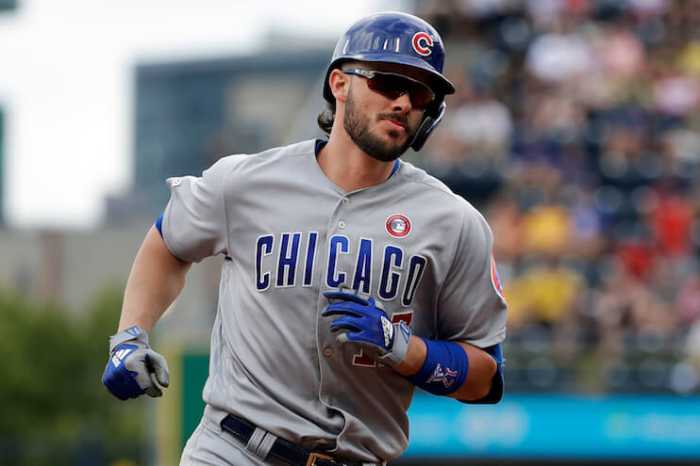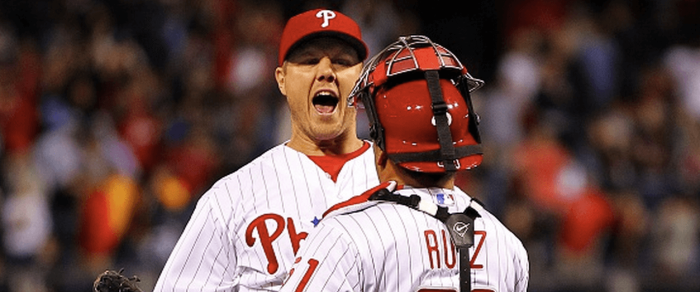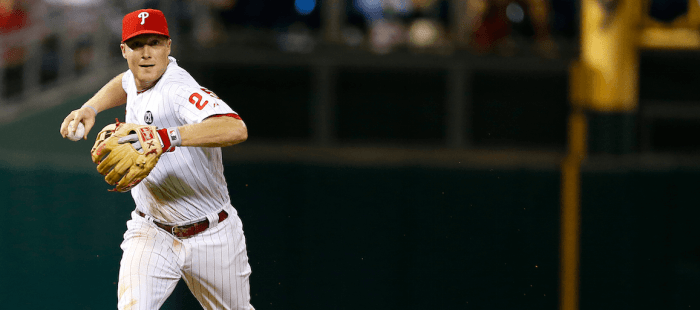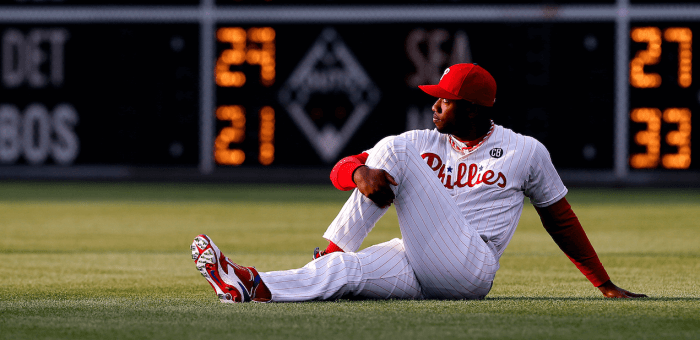With the announcement that Pete Mackanin will remain the Phillies’ interim manager through the end of the season, it seems clear that Andy MacPhail will be the one hiring the next manager of the team.
There is a lot of speculation on whom that may be, and it involves everyone from established managerial veterans to recently retired players, some of them former Phils, looking for their first gig.
It seems likely when a new manager takes the reigns they’ll be entering a situation with a new president, new general manager and potentially without the best players on the current roster.
So while it may be awhile before we see the successes and achievements of 2007-2011 again, any moderate success would reflect well on the man who follows the Sandberg/Mackanin era.
As a bit of a companion history piece to last week’s examination of Phillies’ executiveshere is a ranking of five managers who achieved at least moderate success with the Phils.
1.Charlie Manuel
If anyone really believed the team’s decline was Charlie’s fault when he was unceremoniously ushered out the door in 2013, hopefully they’ve had a change of heart watching the product on the field since.
The winningest manager in team history (by 186 games,) also has the most playoff appearances, playoff victories, World Series appearances, and of course, is tied for most World Series victories, with one.
He had great players, sure, but Charlie got the most out of them, and contributed greatly to making Philadelphia the most desirable place to play baseball at the end of the decade.
2.Pat Moran
Moran retired from playing with the Phillies in 1914, and was immediately named manager of a team that finished 20.5 games back in the NL, placing sixth out of eight teams.
He then immediately led them to the franchise’s first pennant and World Series appearance in 1915.Pete Alexander won pitching’s Triple Crown.They were ultimately beaten by a Boston Red Sox team that included Babe Ruth.
Moran’s Phillies career included two more second place seasons before Alexander was traded and World War I began.All the upheaval led to losses, and losses led to Moran’s dismissal.
He resurfaced with the Cincinnati Reds in 1919 and this time took a team that had finished 15.5 games back in 1918 to the 1919 World Series title, defeating the infamous Black Sox.
3.Danny Ozark
Ozark held the club marks for both career wins and longest tenure before Manuel broke them, and it is Ozark whose career with the team is the most similar to Manuel’s.
Ozark oversaw Mike Schmidt and Steve Carlton enter their primes with the team, and another parallel to the Manuel era can be drawn with the acquisition of Pete Rose to put the team over the top.
From 1976 to 1978, Ozark’s team won the division each year and twice won 101 games, a club best that would only be beaten by, you guessed it, Manuel.But the team could never break through to the World Series under Ozark, and, as the window looked like it was beginning to close in 1979, Ozark was dismissed.
4.Dallas Green
The man who replaced Ozark, Dallas Green might deserve to be higher on this list as the man who shepherded the Phillies to their first World Series title in 1980.The accomplishment is even more impressive when you consider the distaste often expressed for the manager by his players.
He loses points for hanging around just a little over two seasons in Philadelphia and for leaving for the general manager’s job in Chicago, taking half the team with him: most famously, a young Ryne Sandberg.
5.Jim Fregosi
Fregosi managed the team for six seasons, and only had a winning record in one of them. That’s not usually the kind of distinction you’d see on a list like this. But that 1993 team wasn’t the kind of baseball squad you’d usually see put together a winning season.And what a season it was.
That year, a team that had finished 26 games back in the division in 1992 would lead their division wire-to-wire, finishing with 97 wins and reaching the World Series.They didn’t win, but Philadelphia will always remember the season that came out of nowhere.
High hopes were complicated by the strike in 1994 and 1995, though perhaps it was always too unlikely that magic could be caught in a bottle again.





























